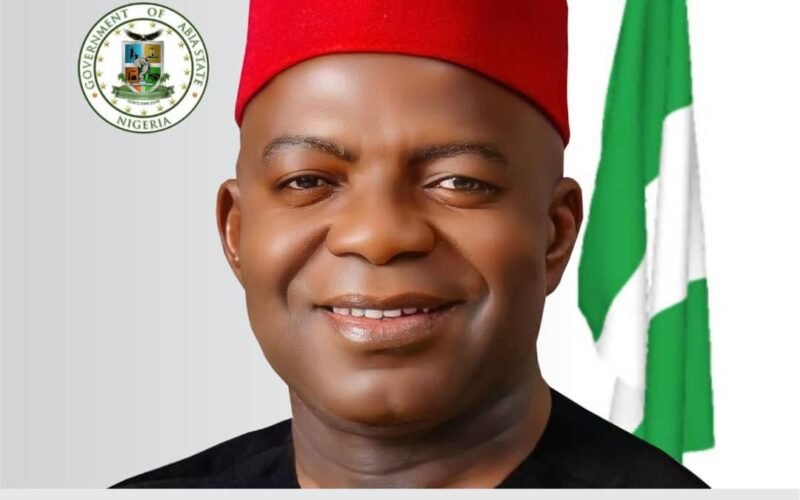Would Otti’s Pro Business Programs Expand Abia State’s Economy in 2025/2026?
Last month, Abia’s Governor, Dr Alex Chioma Otti, declared in a private meeting that he has laid out and implemented a series of programs and projects in the three senatorial zones of the state, drawing immediate appreciation from business leaders of those zones. “Most of the programs rolled out would likely prompt pro-poor growth, leading to expanded opportunities for enterprises,” a business man Chidi Umeh in Isiukwuato said. An importer of used fabrics in Aba, Kalu Nwojo, said he’s expanding more patronage come 2025/2026 as he’s expecting higher purchasing power residents of Aba.
Abia State’s business programs focus on creating a conducive environment for businesses to thrive. The state government has implemented various initiatives to improve the Ease of Doing Business (EoDB) ranking, moving from 33rd position in 2021 to 21st position in 2023. Some of the key reforms and commitments include Establishing Small Claims Courts to expedite dispute resolution, Reducing Time for Certificate of Ownership to obtain a Certificate of Ownership (C of O) for businesses within 30 days of document submission. Others are One-Stop Shops for Business Registration to simplify the business registration process, Tax Rebates for Investors to incentivize investment in the state and Allocating Land to Investors to support business growth and development.
These initiatives aim to enhance the business environment, attract investments, and promote economic growth in Abia State.
As more details emerge, we are made to understand that Otti’s key areas for expanded private investment are Textile Manufacturing as it hosts a thriving textile industry, with opportunities for investment in modern machinery and equipment. We are told that Governor Otti priorities Pharmaceuticals Production since the state has arable land and natural resources that can be harnessed for pharmaceuticals production. He’s already in consultation with some Pharma giants (names withheld). Agricultural Packaging has caught his fancy as well he strongly believes that the State has opportunities for investment in agricultural packaging, which can help boost exports and improve food safety. Tourism Investment has remained huge challenge as he wants to redirect traffic to the state and he wants it to be purely private sector driven. Granted
the state has several tourist attractions, including the Ojukwu Bunker and the Azumini Blue River waterside, which can be developed and promoted to attract visitors, Otti desires to create more destination with pulling in government bureaucracy into the space.
To provide insight into the potential effects of the various business programs and projects in Abia State, I spoke with Mr Stephen Mbah, a seasoned banker and former branch manager of commercial bank in Umuahia. Mr. Mbah has extensive experience in the banking sector, having worked with various organizations to improve financial inclusion and economic development in Abia State.
According to Mr. Mbah, the current economic landscape in Abia State presents both opportunities and challenges for businesses and investors. He explained that the state’s economy is largely driven by small and medium-sized enterprises (SMEs), which are critical to job creation and economic growth.
Mr Mbah also noted that Abia State has made significant progress in improving its business environment, including the establishment of a one-stop shop for business registration and the implementation of tax incentives for investors. However, he emphasized that more needs to be done to address the state’s infrastructure deficits and improve access to finance for SMEs.
Here’s the rewritten text:
Mr. Stephen Mbah, a banker, shares his insights on the potential effects of Otti’s investments on Abia State. He said: “While the intention behind imposing tariffs is to protect and promote economic growth, the current infrastructure in Abia State is already expanding the real and services sector in the state.”
However, escalating the targets with more aggressive policies, as proposed by Otti, is a good idea. Such policies would lead to increased consumer preferences, higher business turnover, job growth, and explosive economic growth in Abia State.
In fact, the Abia State Chamber of Commerce estimates that the increased economic activities will grow the state’s GDP by 0.5%, the capital stock by 0.2%, and hours worked by 5,000 full-time equivalent jobs. Additionally, interstate goods turnover could further grow Abia State’s GDP and employment.
So, while addressing unfair business practices is essential, escalating the targets with more incentives is the solution. A more balanced approach that promotes fair trade and avoids harming Abia State consumers and businesses is needed.
To effectively support working-class citizens in Abia State, the government prioritizes investing in workforce development, training, and education. Governor Otti stressed that this could involve increasing funding for vocational schools in Abia State to produce a highly skilled technical workforce, as well as promoting entrepreneurship and innovation in key sectors such as textiles, manufacturing, and agriculture.
Additionally, the government of Abia State has already implemented policies that support small businesses and start-ups, such as providing access to capital, tax incentives, and streamlined regulations. This would help create new job opportunities and stimulate economic growth in Abia State. Otti believes that supporting local businesses and entrepreneurs, his government can help drive economic development and improve living standards for working-class citizens.
He added that it’s essential to address the issue of wage stagnation, which has left many working-class citizens in Abia State struggling to make ends meet. This is what made him implement the increase in minimum wage, improving relationship with the various union to protect collective bargaining rights, and provide benefits such as paid leave and affordable healthcare. By supporting Abia workers’ rights and promoting fair labor practices, the government Dr Alex Chioma Otti, OFR of Abia State has helped ensure that working-class citizens receive a fair share of the state’s economic growth.
Furthermore, Dr Otti, a first class graduate and a PhD holder from the prestigious University of Nigeria Nsukka, UNN, has ensured that the government of Abia State recognizes the importance of human capital development in driving economic growth and job creation. This involved investing in education and healthcare, as well as promoting skills development and entrepreneurship training programs. Otti prioritizes human capital development, as the government of Abia State has helped create a highly skilled and productive workforce that can drive economic growth and development in the state.

Dr Chukwuemeka Ifegwu Eke writes from the University of Abuja Nigeria.







